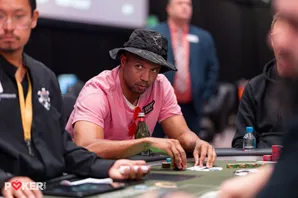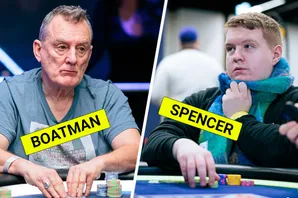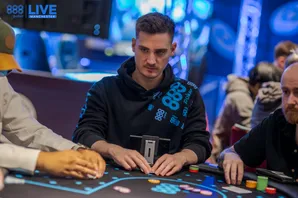My latest book, Improve Your Poker Now! — A Guide for Serious Amateurs, co-authored with renowned poker author and coach Alex Fitzgerald, is all about equipping recreational players with the essential tools to level up their poker game. The goal is straightforward: provide practical, easy-to-execute strategies for anyone looking to improve at the poker table.
While the book covers a comprehensive range of strategic concepts, one critical topic often overlooked in poker education is the art of paying attention at the table.
The Importance of Focus in Poker
We all know that focus is crucial in poker. Opponents constantly give away information — from betting patterns to timing tells. Yet, poker rooms are filled with players distracted by their phones, watching movies, or even listening to podcasts. It’s not hard to imagine a scenario where, in any other competitive field, a professional would lose focus. Can you picture Magnus Carlsen distracted by a TV show during a chess match? Or an NFL coach scrolling through TikTok in the middle of a game? It’s unthinkable. Yet, this happens daily in poker.
Why Do We Struggle to Focus?
If focus is so important, why do so many players struggle to maintain it? The simple answer is that consistent focus is harder than it appears. With so many elements to observe — positions, player tendencies, bet sizing — it can be overwhelming. We live in a world full of distractions, and when things get difficult at the table, it’s easy to reach for the nearest screen.
I get it — staying focused at the poker table isn’t easy. It’s something I battle with too. But the question isn’t just why it’s hard to focus, it’s: how do we overcome it?
Observation as a Skill
The key to paying attention effectively is recognizing that observation is a skill, one that can be trained. It’s not enough to simply decide to “pay attention” and hope it works out. Focus requires a clear plan: what exactly are you observing?
For example, teaching a teenager to drive doesn’t start with a cross-country road trip in a 747. They first learn the basics in a go-kart, gradually progressing to driving on a road, then to a busy street, and eventually to highway driving. Poker players must follow a similar progression.
Start Small: Choose One Thing to Observe
Alex and I recommend starting with just one thing. Pick one aspect of the game to focus on during your next session. Observe it consciously. By the end of your session, you should be able to provide a detailed analysis of that specific aspect.
For example, try focusing on the way your opponents play from the big blind. Are they folding too often? Do they call every hand? This one observation can drastically improve your ability to exploit them.
What Should You Observe?
Here are some suggestions to get you started:
-
How do opponents play from the big blind? Players who fold frequently are prime candidates for a steal. Players who call often provide opportunities for post-flop exploitation.
-
How does the table react to continuation bets? Identify who folds regularly and who calls too much, then adjust your betting strategy accordingly.
-
Who three-bets frequently? Take note of these players so you can adjust your opening range accordingly when they’re in the mix.
-
Who checks or looks at their cards before it’s their turn? Players who tip their hands by checking early may reveal their intentions, giving you an edge.
-
Watch for loose openers. Players who frequently raise with weak hands are ripe for exploitation. By identifying them early, you can adjust your strategy to isolate them.
Building a Systematic Approach
By focusing on one aspect at a time, you reduce the overwhelming pressure of trying to observe everything. As you master each aspect, add another layer. Eventually, observation will become second nature, just like driving a car. What once seemed complicated will soon feel automatic.
Wrapping Up
The poker table is filled with distractions, but these distractions are opportunities in disguise. While others lose focus, you can capitalize on the information available and increase your chances of winning. The key is to start small, build your observation skills step by step, and keep practicing.
In Improve Your Poker Now!, Alex and I dive deeper into how to use what you observe to gain a competitive edge. But for now, start with one thing, train your focus, and watch your results improve.
With every poker session, you’ll become more aware, more strategic, and ultimately, more successful.












